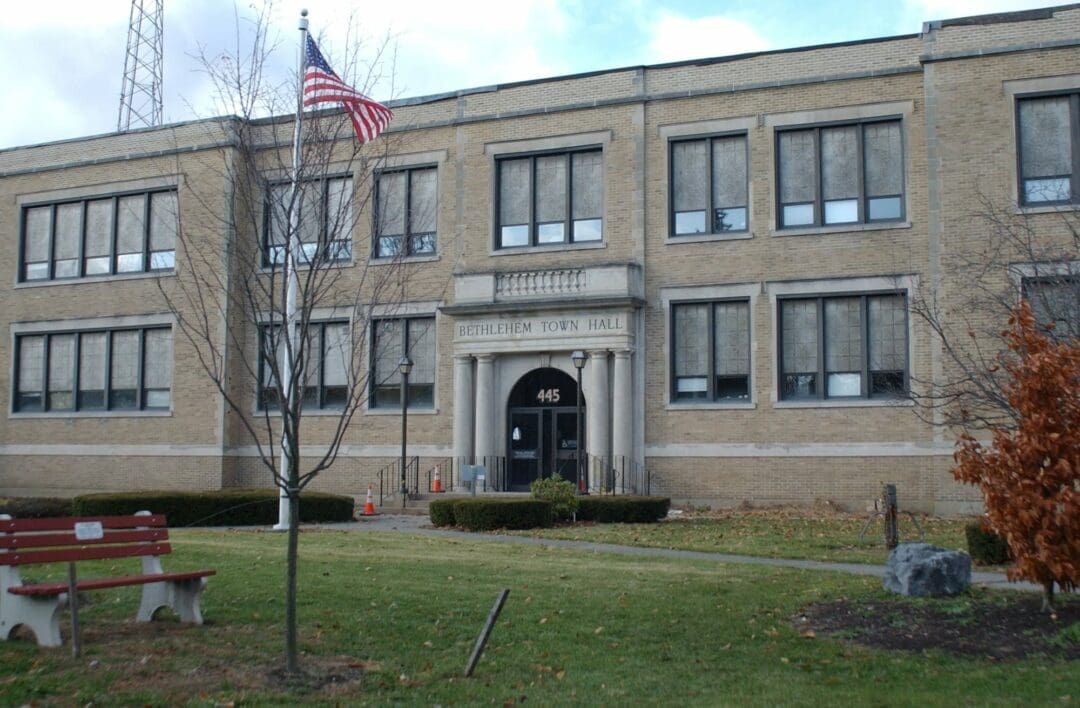After nearly six weeks of meetings and public comment, and a day after an election that reshaped town government for the next two years, the Bethlehem Town Board adopted a $38.6 million budget for 2012 at its meeting Wednesday, Nov. 9. Board members were unanimous in their support of the budget. Before the adoption of the spending plan, Supervisor Sam Messina boasted that proposed spending was up by 0.01 percent compared to 2011 and that the town cut the use of its fund balance by 51 percent over the current fiscal year, or by more than a million dollars. “I know there are some different points of view here,” said Messina. “I think every board member would like to see zero tax increases, and maybe some would like to see negative tax increases but this is what it is right now.” The budget leaves out a cost of living increase for town employees, asks them to pay more for health insurance co-pays, and saves money by leaving out a reassessment project slated for 2012-2013. The budget also includes $200,000 worth of “limited merit increases and incentives” to be handed out to select deserving employees who have, for example, taken on new responsibilities without an increase in pay. “The truth is we are fulfilling commitments we have made over the years,” said board member Mark Hennessey. “We’re moving in a direction to reinforce the infrastructure of this town, which I know has been important for every single person who’s been involved both this year and in prior years.” Board member Kyle Kotary commended the board and town staff for their work on the budget, and for avoiding the temptation to incorporate additional projected revenues into the budget. Estimates are that revenues coming into the town in 2012 will increase by nearly a million dollars, or by more than three percent compared to 2011. “We all agreed that if it came, we would sock that away into our fund balance, so we could help pay for the potential cost of infrastructure, both necessary for replacing damaged materials but also for continuing to upgrade our infrastructure,” said Kotary. The largest unknown expense for the town in 2012 may be the cost of rehabilitating and replacing infrastructure that was damaged during Tropical Storm Irene. Town officials first met with representatives of the Federal Emergency Management Agency in October to discuss applications for funding. Projects approved by FEMA would be funded up to 75 percent of the way, with the town and state splitting the remaining costs of approved work. Erik Deyoe, who was confirmed at the meeting as the Commissioner of Public Works after serving in an acting role since the summer, said that he hopes to update the board regarding the costs of damage done by the powerful storm later this month or in early December. “It’s kind of all hands on deck to get things back to the way they used to be,” said Deyoe. Messina also credited town staff and board members with shying away from “one-shot deals” while reducing operating costs. “That’s how government has gotten in trouble in the past,” said Messina. “It looks at its one-shots, and then the next year, it can’t take that one, or it’s back again, and the cost has to be dealt with in a different way.” The budget keeps the town well within the parameters of a two percent cap placed on municipalities this year. That cap was approved by the state legislature, and signed off on by Gov. Andrew Cuomo. Under the law, Bethlehem would be able to increase its tax levy by up to 4.1 percent without overriding the cap.
Bethlehem budget adopted
Leave Comment



